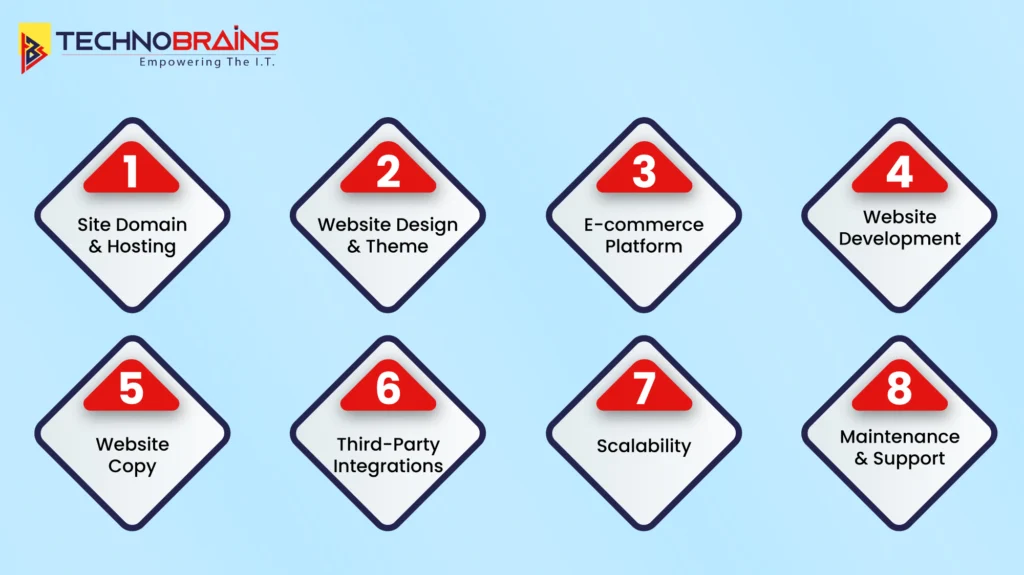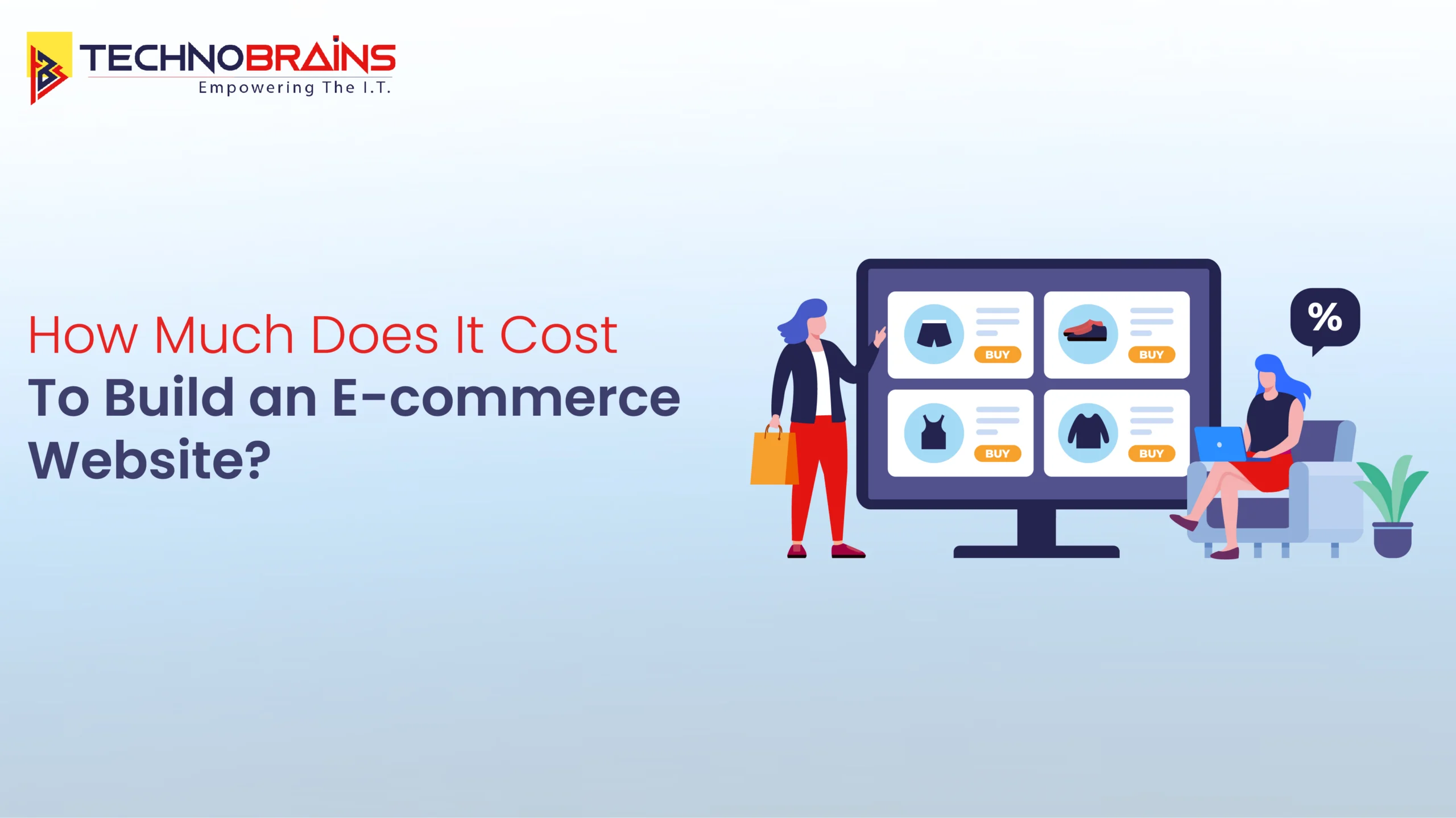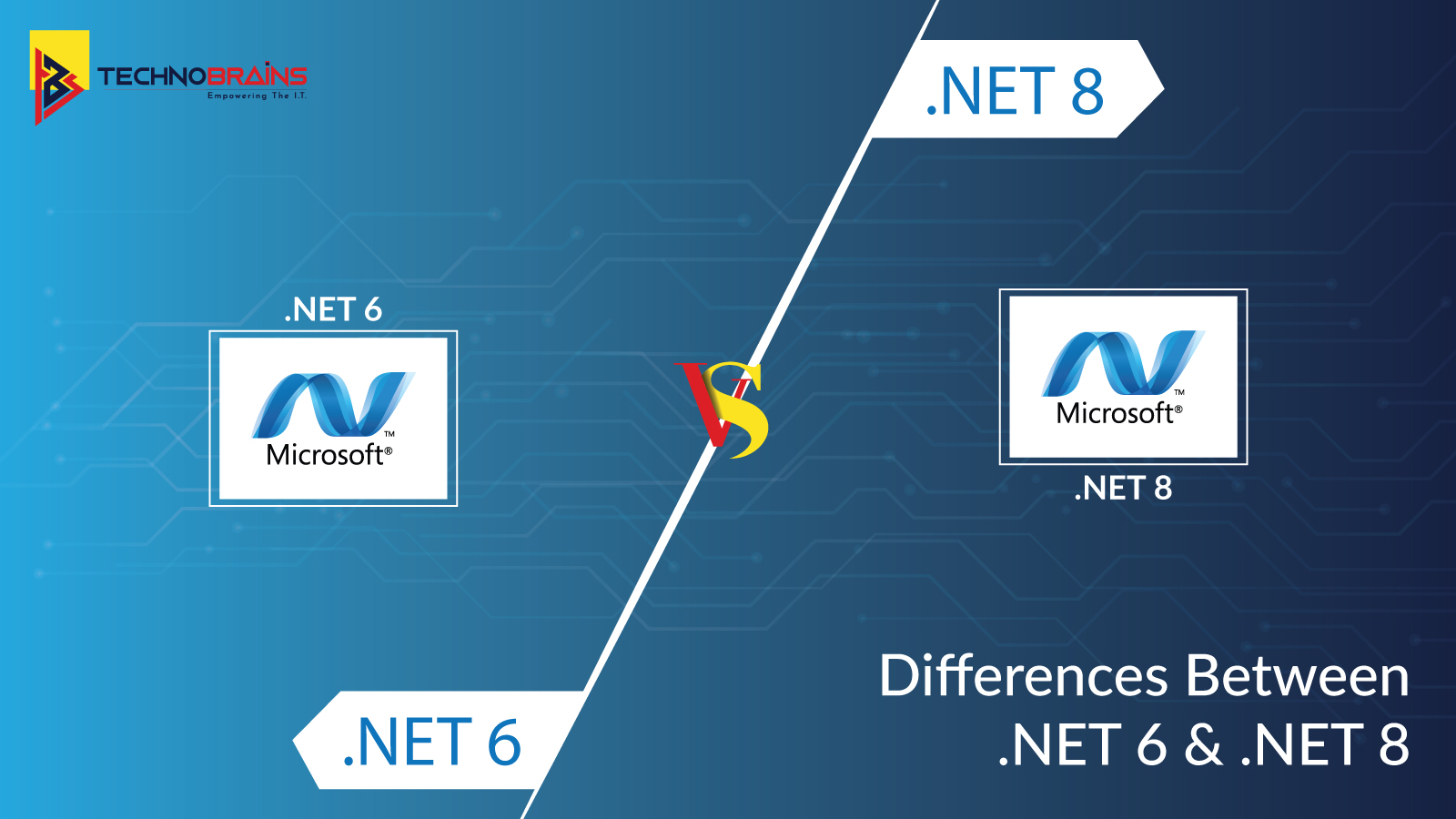Get 40 Hours Free Developer Trial
Test Our Developers for 40 Hours at No Cost - Start Your Free Trial →
Are you seeking to build an eCommerce website? If so, you’re most likely wondering about the cost of building an eCommerce website in 2024.
Well, the eCommerce website development cost can range from $2,000 to $250,000, and at times, it can cost even more. In fact, determining a ballpark figure is tricky. Given how it is contingent on a number of variables, like project complexity, development platform, required features, and level of customization, among other aspects.
Today, for any eCommerce business to widen its market reach and drive profitability, whether it’s a start-up or a large-scale organization, having a site is crucial. It’s not merely a choice anymore; it’s become an essential necessity. By having a brick-and-mortar storefront and an online shop representing your brand in the digital realm, the chances of your business succeeding will practically soar.
In this context, being aware of the expenses associated with developing an eCommerce site can help you allocate and plan more decisively. Although it is challenging, there are a few factors that can help approximate the cost better. The purpose of this blog post is to examine those exact factors that influence the expenditure and provide you with an adequate grasp of the cost of an eCommerce website.
So, let’s get started!
Read Also, Top Frontend Frameworks for Web Development
How Much Does an eCommerce Website Development Cost?

Many drivers influence the expenses that go into building an eCommerce website. So, what’s the best way to accurately evaluate your eCommerce website development cost? The answer is quite simple.
By factoring in the project’s different aspects and necessities, you’ll be able to come up with a viable figure that could give you a clear path forward and allocate resources and time more efficiently. We’ll be looking at the diverse variables that impact the expenses related to eCommerce website development to help you weigh the costs involved. Ultimately, this information will aid you in making an informed decision and progressing confidently with your project.
1. Site Domain & Hosting
Your domain is your website’s name and identity as a whole, allowing you to establish an authoritative brand image and distinguish yourself from your competitors. Selecting a name that’s unique yet memorable will have a significant impact on the development of the audience’s perception of your business.
Hosting is essentially a digital place for your website to live, where your site, product listings, and user details will be stored. Web hosting providers allow you to house your website on their servers for fixed costs. Various parameters, such as the user traffic your website attracts, any additional features, the number of pages, the country you’re targeting, etc., come into play here, influencing the hosting cost and subsequently the final price of building an eCommerce site.
2. eCommerce Platform
Another significant factor that affects the cost of eCommerce website development is the choice of platform. Platforms like WooCommerce, Adobe Commerce (formerly Magento), and Joomla offer lower upfront costs compared to proprietary solutions but require technical expertise. They allow developers to customize the platform per business requirements. Proprietary platforms often offer greater security measures, advanced features and functionalities, and easy integration with other business-critical systems
3. Website Design & Theme
A user’s perception of your brand is formed the second they land on your website, emphasizing the significance of its design. This influences 75% of your online storefront’s reputation. When it comes to your website’s design and theme selection, it is vital that you first understand your business as a brand, comprehending what makes it unique to who it is meant to serve, i.e., the eCommerce business model you choose. All these factors can help shape the way you present your brand to users and make design decisions, which eventually add to the development expenses.
4. Website Development
eCommerce website development cost is usually dependent on numerous factors, whether you’ve decided on building the website yourself or engaging a web development agency for the endeavor. Apart from that, the cost could scale based on the desired features and functionalities as well as the complexity and time required for the project.
5. Website Copy
Content serves an essential purpose for your website. The textual content on your website can help convey your service offerings to your target audience. Text-only pages are not really necessary for an eCommerce website.
Clear, succinct, and accurate product descriptions are far more likely to boost user conversion as well as increase the chances that these users will buy from your online store. Moreover, SEO-optimized content plays a key role in ranking your website on search engines such as Google. For the purpose of creating high-quality content for your eCommerce website, you must bring in an experienced copywriter with relevant experience, which surely will raise development costs.
6. Third-Party Integrations
Integrating various third-party programs, such as CRMs, payment gateways, inventory management systems, shipping gateways, and the sort, is crucial as they enable you to extend the functionalities of your store further. When planning for these third-party integrations, keep in mind that the development costs may also increase.
7. Scalability
Scalability is indispensable. It ensures that your eCommerce website is capable of sustaining optimal functionality and performance even in peak hours or when there’s a spike in user traffic. Additionally, creating a scalable website can guarantee that it is future-ready and has the capacity to support business expansion as your brand grows. While building such a website may incur additional costs initially, it has the potential to save exponential costs in the long run.
8. Maintenance & Support
The long-term success of your eCommerce store extends beyond its initial launch. Following the website’s launch, continual maintenance and support become imperative to ensure its unhindered performance, security, and fixing bugs. This, in turn, contributes to the website’s enduring triumph and profitability in the long run. For this purpose, businesses must set aside a certain proportion of resources that will go into the store’s ongoing upkeep and support, which is crucial for maintaining its competitiveness and relevance in the market.
Read Also, Hottest Web Development Trends for 2023: What to Expect
Wrapping Up
One can firmly conclude that developing an eCommerce website is not just a cost you bear; it is a choice capable of producing new revenue streams for your business in the highly competitive topography today. By weighing all the factors mentioned above carefully, you’ll approximate the cost of an eCommerce website per your specifications and be able to confidently embark on the initiative.
Once you’ve decided on a budget, you can start looking for a reliable web development company that can lend the required expertise and know-how to help you build the website. Selecting to partner with an industry expert knowledgeable in eCommerce trends and advances will ensure the provision of services of the highest caliber and the delivery of a top-quality eCommerce website tailored to your unique requirements.
At TechnoBrains, we specialize in creating secure, dependable, and feature-rich eCommerce websites that can serve as catalysts for your business’s success. We’ve got the experience and aptitude needed to transform what you have in mind into a powerful, economically viable website with our top-tier web development services. Get in touch with us now to learn a bit more about our services and how we can help you!











